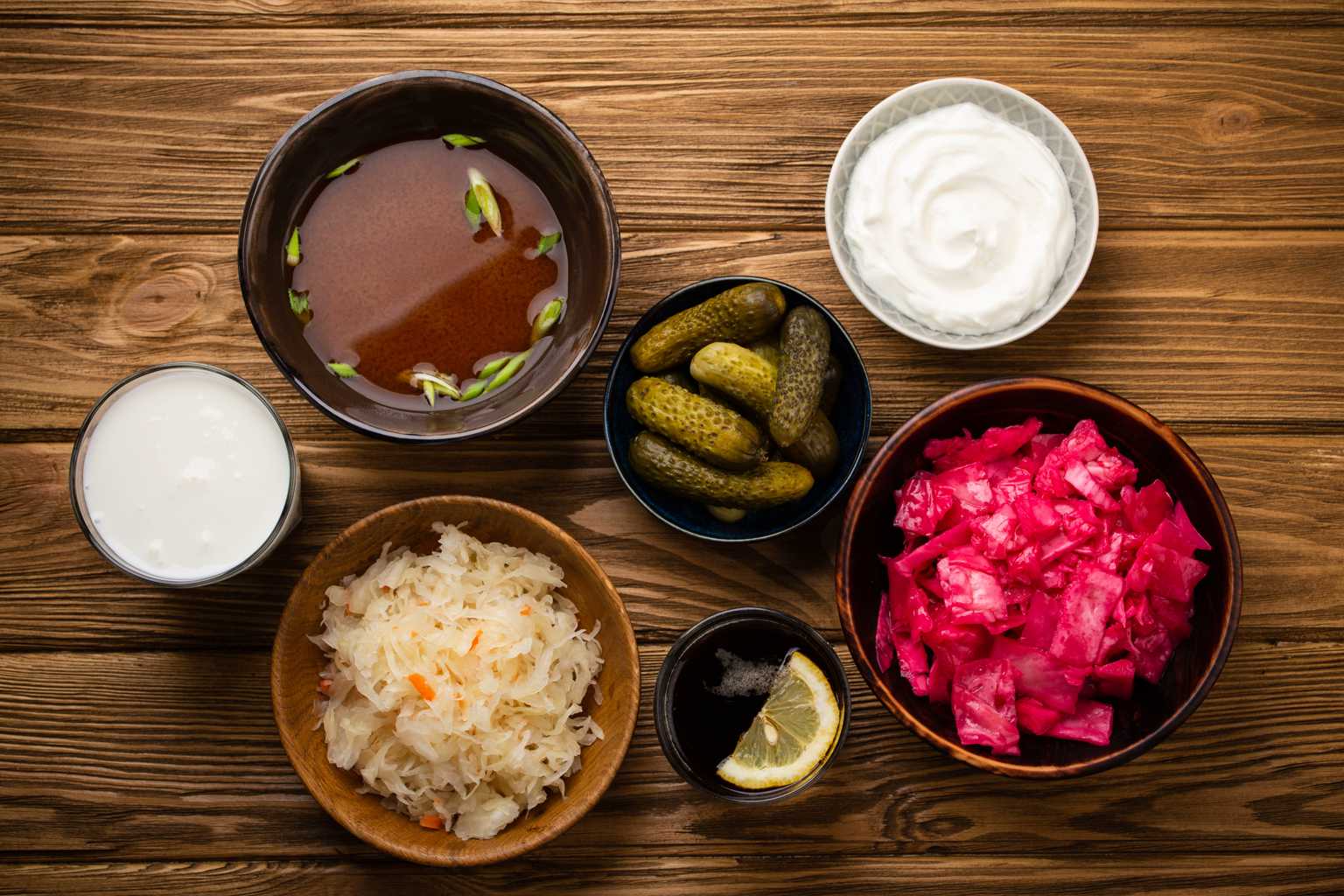Fermented foods like yogurt, kefir, kimchi, sauerkraut, miso, and kombucha are quickly becoming much more than a passing culinary trend. With their tangy flavors and distinctive aromas, these foods have stood the test of time, nourishing cultures around the world for centuries. But what’s drawing renewed attention today is not just their taste or tradition, it’s their remarkable ability to boost your health in ways modern science is only beginning to fully understand.
Fermentation is a natural process where microorganisms such as bacteria and yeast transform sugars in food into acids or alcohol. This process preserves food, enhances its flavor, and most importantly, introduces powerful health-supporting properties. From your gut to your brain, fermented foods may hold the key to greater well-being, resilience, and even happiness.
Why fermented foods matter
The real magic behind fermented foods comes from their rich probiotic content. Probiotics are live microorganisms that support a healthy gut microbiome, the vast community of bacteria that live in your digestive tract. Your gut is home to trillions of bacteria, many of which play critical roles in digestion, immune defense, and even mental health. Eating fermented foods introduces beneficial bacteria that can restore balance, especially after illness, antibiotic use, or periods of stress and poor diet.
Research now shows that a thriving, diverse gut microbiome isn’t just about comfort, it’s linked to lower risks of chronic disease, better metabolism, and even improved mood.
Gut health and digestion
Fermented foods are powerful allies for your digestion. They increase the number of helpful bacteria in your gut, which breaks down food more efficiently and helps your body extract essential nutrients. Many people who suffer from bloating, constipation, or irregular digestion find real relief by adding fermented foods to their daily routine.
What’s more, some fermented foods contain special enzymes that help digest certain nutrients. For example, fermented dairy products like kefir and yogurt are easier to digest for many people who are lactose intolerant. During fermentation, bacteria break down much of the lactose, turning what could be a troublesome food into a nourishing one.
Immune system support
Did you know that nearly 70% of your immune system is based in your gut? A healthy, balanced gut microbiome is crucial for fighting off pathogens and regulating inflammation. When you eat probiotic-rich foods, you help reinforce your body’s natural defenses. Scientific studies suggest that people who regularly consume fermented foods may have a lower risk of infections and recover faster when they do get sick.
In addition to battling invaders, a robust gut community may even help regulate allergies and autoimmune responses, lowering your chances of developing chronic inflammation over time.
Mental health and mood
The connection between your gut and your brain is so profound, scientists often call the gut the “second brain.” There’s growing evidence for what’s known as the gut-brain axis: the idea that a healthy digestive system can have a direct impact on your mood, clarity, and emotional well-being.
Certain strains of probiotics found in fermented foods are linked to lower levels of anxiety, depression, and stress. This is partly because your gut produces neurotransmitters like serotonin, which play a crucial role in mood regulation. In short, supporting your gut can be a powerful way to support your mind.
Nutrient absorption and production
Fermentation doesn’t just preserve food, it actually makes it more nutritious. The process can increase the bioavailability of essential vitamins and minerals, making it easier for your body to absorb key nutrients like B vitamins, magnesium, and zinc.
Some fermented foods even create their own vitamins as a byproduct. For instance, natto, a traditional Japanese soybean dish—produces high amounts of vitamin K2, a nutrient important for bone and heart health. Adding a range of fermented foods to your diet means you’re getting more from every bite.
Tips for adding fermented foods to your diet
- Start slow if you’re new to fermented foods, begin with small amounts so your body can adjust.
- Choose unpasteurized products to ensure you’re getting live, active cultures (always check the label).
- Pair fermented foods with meals for added flavor and digestive support, try sauerkraut with eggs or yogurt with fruit.
- Experiment with making your own fermented vegetables at home using just salt, water, and clean jars.
- Rotate different types of fermented foods, such as kimchi, miso, and kombucha, to expose your gut to a wider variety of beneficial bacteria.
What to watch out for
While fermented foods are generally safe and well-tolerated, they may not be right for everyone. People with histamine intolerance, certain gut conditions, or compromised immune systems should consult a healthcare professional before making significant changes to their diet. Also, keep an eye on sodium levels, some products like pickles and sauerkraut can be quite salty. As with any food, moderation is key.
For most people, though, the benefits far outweigh the risks, especially when you focus on variety and quality.
Final thoughts
Fermented foods offer far more than a flavor boost, they’re a natural, time-tested way to improve digestion, strengthen your immune system, and support better mental health. By making room for these living foods on your plate, whether it’s a spoonful of yogurt at breakfast, a serving of kimchi at lunch, or a glass of kombucha in the afternoon, you’re investing in long-term wellness from the inside out.
🥄 Add a little fermentation to your daily routine and let your gut, and your whole body thank you.
